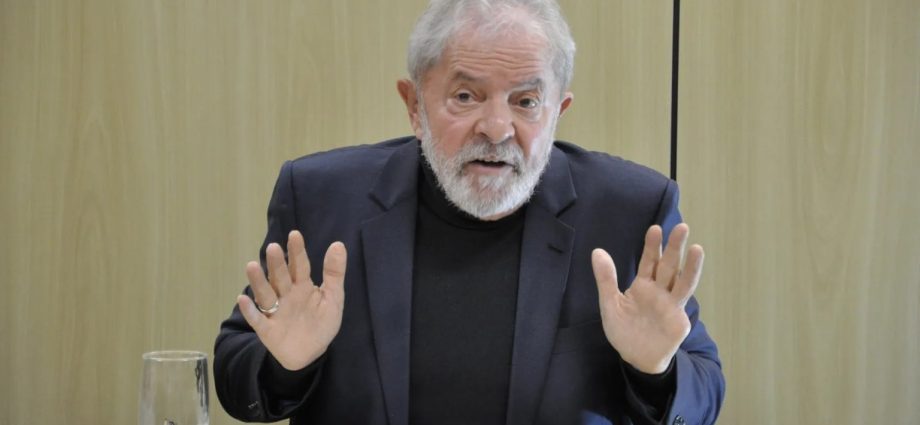
Brazilian President Luiz Inácio Lula da Silva is currently in Beijing with a huge official and business delegation. His goals are clear: first and foremost, bringing growth opportunities to Brazil, whose economy has been battered by the Covid pandemic.
Brazilian exports of commodities into China have ballooned since Beijing’s fiscal binge in 2008 that led to pent-up demand for commodities.
More recently, Brazil’s large lithium reserves, together with other critical materials for energy transition, explain a renewed scope for Brazilian exports and its positive trade balance with China, one of the very few in the world, at least among large economies.
Beyond exports, China is one of Brazil’s largest investors, especially in the power sector. State Grid has invested some US$3 billion in Brazil’s power transmission and China’s COFCO has also invested more than $1.1 billion in Brazil’s agribusiness.
High interest rates globally make it harder for Brazil to attract needed financing for its development, which also makes China’s potential investment all the more appealing.
Burgeoning middle power
But growth and development are not the only goals for Lula’s state visit to Beijing. As a second-time president of Brazil, Lula wants to make a difference and bring his country to the global stage of the middle powers.
The traditional venues to achieve such a goal are not working for Brazil, with a rather dysfunctional Group of Twenty and the absence of trade deals with the US and the 20-years-in-the-making Mercosur one with the European Union.
Lula likely feels that only China can offer quick results with his Global South Initiative and help Brazil become a major regional leader within Latin America.
In fact, China has cleverly offered the presidency of the BRICS Bank, renamed New Development Bank, to Lula’s right hand, Dilma Rousseff, who became Brazil’s president in 2016 after Lula was impeached and removed from office.
Pursuing autonomy
A third and final goal Lula is trying to achieve with this visit is to show to the US that Brazil has options.
This is probably not too different from French President Emmanuel Macron’s objective in his recent trip to Beijing. A big difference between the two, though, regards their position on Ukraine, where Macron could not exercise much “strategic autonomy,” tied by NATO’s rhetoric, while Lula certainly can and has already done so.
In fact, since February Lula has intensified diplomatic efforts to end the war in Ukraine by creating a so-called “peace club,” with a potential invitation to Indonesia. How much this is an independent effort or shadowed by China is a big question, but it clearly shows that Brazil, under Lula, will have its own diplomatic agenda and that US influence might wane further.
For Chinese President Xi Jinping, Lula is not just one more head of state in pilgrimage to Beijing but a very important one, given Brazil’s size and strategic location, to tilt the balance in favor of a more united Global South ready to follow China’s global leadership.
Two aspects seem particularly important for Xi, namely the internationalization of the renminbi and China’s role as a broker of global solutions. Regarding the former, Brazil announced last week the establishment of a local infrastructure for yuan clearing, which should boost the international use of the Chinese currency.
However, this is just one more of the 20 yuan clearing centers that exist globally, which have not yet really dented the US dollar’s role as the global reserve currency. Much more will need to happen on this front for Xi to see the demise of the dollar during his tenure, no matter how long it might end up being.
Instead, Lula can certainly contribute by supporting China’s initiatives, starting with its peace plan for the Ukraine war but also the Global Development Initiative, as part of the several narratives pushed by Xi to entice emerging and developing countries into Beijing’s sphere of influence.
While Brazil has so far shied away from the better-established Belt and Road Initiative, Lula has personally praised this initiative and has been a keen supporter of the BRICS alliance since the first summit in China in 2011.
How much Lula will be ready to trade Brazil’s strategic autonomy for a closer alliance with China in the context of South-South cooperation is yet to be seen. The answer will not only boil down to the 20 cooperation agreements that are expected to be signed during Lula’s current state visit but, more important, how much room China is ready to leave Brazil as a middle power versus Xi’s usual hub-and-spoke approach to international relations.
As much as Lula is clearly leaning toward China to the detriment of Brazil-US relations, he still believes Brazil must push for a multipolar world in which middle powers like his country have a say.
Alicia García Herrero is chief economist for Asia-Pacific at Natixis and senior research fellow at Bruegel. Follow her on Twitter @Aligarciaherrer.

